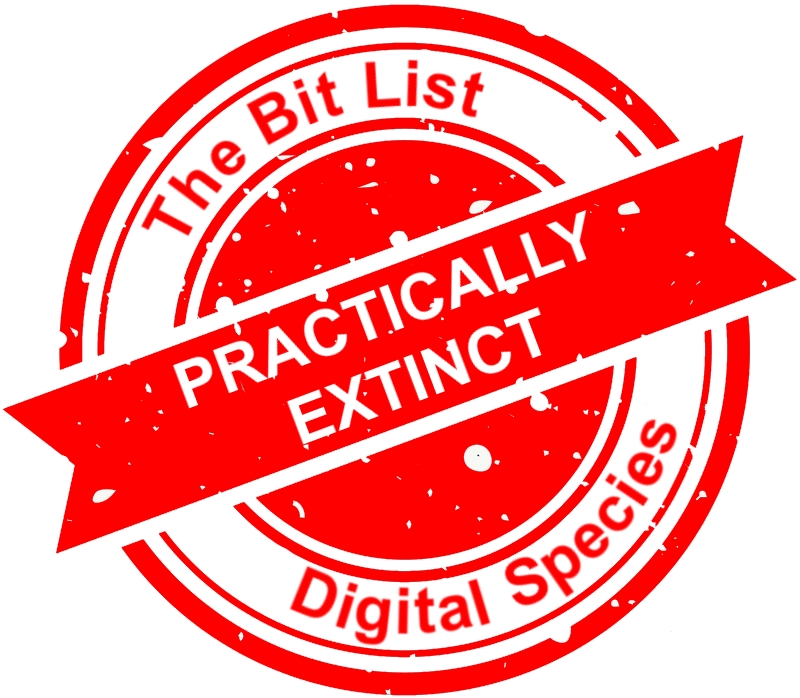Non-standard Public Records
 |
||
|
Records created in the course of public administration and subject to public records legislation but created on unofficial channels and platforms and therefore subject to unlawful destruction whether by accident or design. |
||
|
Digital Species: Legal Data |
Trend in 2023:
|
Consensus Decision |
|
Added to List: 2019 |
Trend in 2024:
|
Previously: Practically Extinct |
|
Imminence of Action Action is recommended within twelve months, detailed assessment is a priority. |
Significance of Loss The loss of tools, data or services within this group would impact on people and sectors around the world. |
Effort to Preserve | Inevitability It would require a major effort to prevent or reduce losses in this group, possibly requiring the development of new preservation tools or techniques. |
|
Examples Content and messages from cloud-based instant messaging services (such as WhatsApp or Snapchat) that pertain to public administration and are subject to public records legislation but concealed from or inaccessible to archival agencies. |
||
|
‘Critically Endangered’ in the Presence of Good Practice Lack of skills, commitment or policy from corporate owners; Business models in conflict with principle of preservation; Archival pathway; public officials briefed on the nature of public records and the penalties for illegal disposal; boundary between public and private correspondence; cloud services administered transparently; export functions; ; Uncertainty over IPR or the presence of orphaned works. |
||
|
2023 Review This entry was added in 2019 as a subset of an entry in 2018 for ‘Digital Legal Records and Evidence,’ which the Jury split into four different entries in order to draw attention to the different challenges and priorities that arise. The 2019 Jury gave this entry the strongest indication of risk available. This group includes those records which may contain politically damaging or uncomfortable realities and thus be at risk of deletion and may be concealed from archival agencies whether by accident or design. The 2019 Jury also noted that the destruction of certain classes of public records is unlawful, whether or not it is deliberate. The 2020 Jury added the trend towards greater risk based on the ‘pivot to digital’ necessitated by the Pandemic resulting in widespread changes in workflow and in the platform for the delivery of government, with significant amounts of remote working. These changes happened rapidly, often without time to consider the preservation and record keeping implications. In those circumstances, it was reasonable to suppose the risks expanded in size as well as scope. The 2021 Jury agreed but found no significant increase or decrease to the trend. They added that there should be a balance between trying to preserve what has already been created using these channels and trying to educate against/prevent records from being created this way in the future. The 2022 Taskforce found no significant trend towards even greater or reduced risk. The 2023 Council agreed with the Practically Extinct classification and noted a slight decrease in the effort needed to preserve and the imminence of action required when compared to the 2021 Jury review, suggesting that overall risks remain on the same basis as before with major efforts needed but loss not entirely inevitable. |
||
|
2024 Interim Review The 2024 Council agreed These risks remain on the same basis as before, with no significant trend towards even greater or reduced risk (‘No change’ to trend). While scores should remain as is currently, the Council recommended the entry be revisited in the next review to consider whether it is better suited under the Public Records digital species instead of Legal Data. |
||
|
Additional Comments Even records created on official channels and platforms are potentially being subjected to unlawful destruction through subversion of official formal processes. This is a ‘small effort to fix’ in terms of the technology to export data. But loss seems likely unless there is stronger monitoring and enforcement of the policy around this. Agencies responsible for the public record will not be able to completely control their public servants' use of unofficial channels (but could tighten), so they need methods to obtain from unofficial channels. Very important for public accountability and transparency of the state. Obviously, these records should not be created using these channels in the first place. It is probably unlawful for those in public office. However, we know there has and always will be this kind of backdoor activity and pretty much always a scandal when it is revealed. The challenge is managing to collect it. Maybe at the time of creating this entry, the Jury was thinking of legal data examples, but at this point, in time, I think the species best belongs under "Public Records" and so should be moved there. |
||









































































































































